Mark your calendar now to experience Off the Wall, a benefit hosted by Mason’s School of Art, the Computer Game Design program, and Film and Video Studies program, to celebrate and support the visual arts at Mason. Create a mural. Star in a film. Play a virtual game!
WHAT: Off the Wall fundraising benefit
WHEN: Saturday, April 21, 2018 5PM-8PM
WHERE: Art & Design Building, Mason Fairfax Campus See Map
PARKING: Event participants can park in the nearby Parking Lot A
COST: Adults = $40-$60 per person, Minors under 18 = FREE
Your family can experience a diverse array of visual arts by Mason students and faculty. Explore open studios and interactive arts experiences throughout the building. Tour the Mason Mural Project on campus and participate in a mural creation. Enjoy the music, silent auction, food, and drinks – it’s a great party!
Off the Wall benefits Mason student scholarships and the visiting artists program.
Please note that this event is NOT presented by Mason Community Arts Academy.

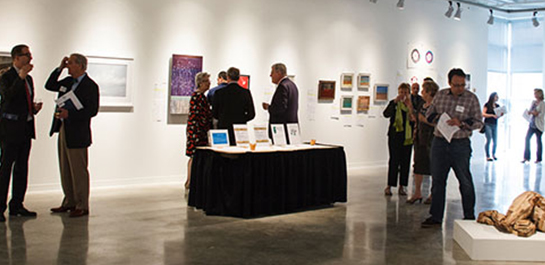
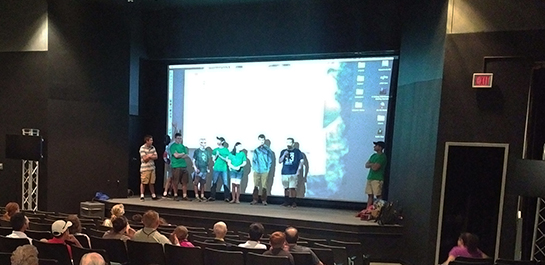
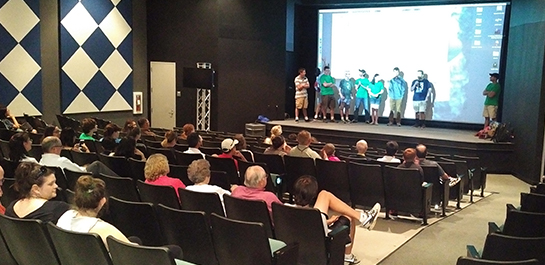
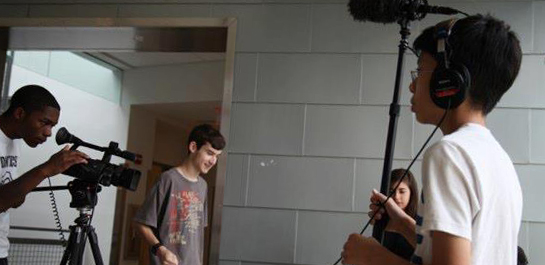
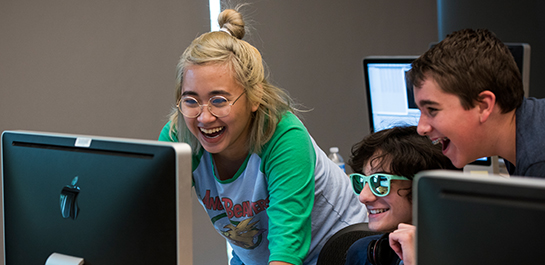
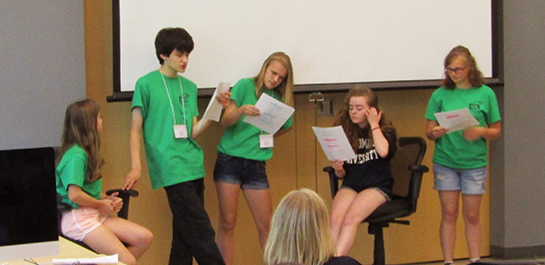
 “There is essentially a void that needs to be filled when it comes to a writer’s heart,” explained Ms. Mitchell. “But how do you write a screenplay? And how do you do it well? To become a scriptwriter, one needs only to sit down and begin, then begin again and again, until you are well into rewriting and on your way to completion. The magic of screenwriting is that it has the ability to transport you to impossible places and yet ground you in authenticity. As a screenwriter, you hold a great responsibility. Your words can lift hearts, shed light, be a catalyst for change and unmask cultural divides; there are no limits to the creative worlds that you can construct and deconstruct. Like any creator, a writer must foremost understand their tools.”
“There is essentially a void that needs to be filled when it comes to a writer’s heart,” explained Ms. Mitchell. “But how do you write a screenplay? And how do you do it well? To become a scriptwriter, one needs only to sit down and begin, then begin again and again, until you are well into rewriting and on your way to completion. The magic of screenwriting is that it has the ability to transport you to impossible places and yet ground you in authenticity. As a screenwriter, you hold a great responsibility. Your words can lift hearts, shed light, be a catalyst for change and unmask cultural divides; there are no limits to the creative worlds that you can construct and deconstruct. Like any creator, a writer must foremost understand their tools.”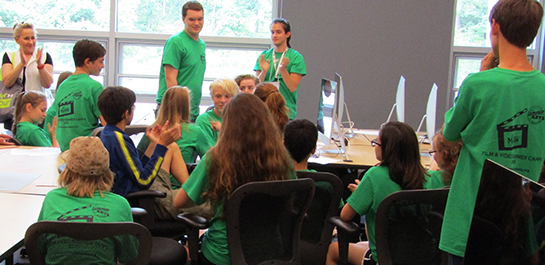

 FILTER BY AGE
FILTER BY AGE